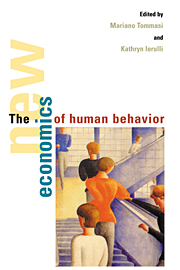Book contents
9 - The economic approach to democracy
Published online by Cambridge University Press: 03 December 2009
Summary
Democracy is the worst form of government, except for all those other forms that have been tried from time to time.
Winston ChurchillIntroduction
Democracy, as taught in high school civics classes, is a beautiful thing. Citizens keep abreast of the news and when an election comes they listen to what the candidates have to say, discuss the issues among themselves, and come to a decision. On election day, they go to the polls and vote for their representatives. These representatives, commissioned by the electorate to work for the public good, meet in the capitals. They gather and discuss the important issues of the day. After a balanced airing of views and suitable reflection about which policies will advance the national interest, the laws are passed and implemented, and the common good is achieved.
Democracy in practice appears to be an ugly thing. Few citizens keep abreast of the news and even fewer listen to what political candidates have to say. Voter ignorance about the issues is widespread. Political debate is often short on substance and long on symbols. In some circles politics is even considered impolite conversation. On election day, it is remarkable how many citizens do not vote: almost 50 percent in presidential elections and up to 70 percent in local elections.
- Type
- Chapter
- Information
- The New Economics of Human Behaviour , pp. 140 - 154Publisher: Cambridge University PressPrint publication year: 1995
- 3
- Cited by



